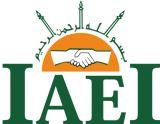Mengukur Tingkat Pertumbuhan Badan Layanan Umum (BLU) Dengan Alat Penilaian Dan Evaluasi Maturity Rating
Abstract
This study explains how to Measure the Growth Rate of Public Service Agencies (BLU) from the Financial Aspect within a five-year period. The method used in this study is a quantitative method by analyzing the annual financial reports of Public Service Agencies (BLU). The object of this study is the Public Service Agency (BLU) of the education cluster, namely BLU UIN Sultan Maulana Hasanuddin Banten. The results of the study conducted at BLU UIN SMH Banten showed a very good liquidity aspect in terms of the current ratio. While the liquidity aspect of the cash optimization ratio is still low. The BLU Efficiency Aspect refers to the ratio of Operating Income to Operating Expenses (POBO), based on the results of calculations processed from the financial statements of BLU UIN Sultan Maulana Hasanuddin Banten from 2017 to 2022, there is no POBO value that reaches the target (90%). The BLU effectiveness indicator refers to Return On Asset (ROA) and Return on Equity (ROE), the target for each ratio is 9% and has generally been met. The level of independence generally shows a downward trend. Recommendations for finding short-term investment instruments with higher returns. Increasing Efficiency by reducing the burden of official travel. Managing Campus Assets optimally to increase the level of BLU independence. The analysis used is a combination of Financial Report Trend Analysis and Maturity Rating Assessment Tools and Evaluation Version 1.0.
Keywords
Full Text:
PDF (Indonesian)References
Atul, U. N., Sari, Y. N. I., & Lestari, Y. J. (2022a). Analisis Rasio Keuangan Untuk Mengukur Kinerja Keuangan Perusahaan. E-Jurnal Akuntansi TSM, 2(3), 89-96. https://doi.org/10.34208/ejatsm.v2i3.1396
Atul, U. N., Sari, Y. N. I., & Lestari, Y. J. (2022b). Analisis Rasio Keuangan Untuk Mengukur Kinerja Keuangan Perusahaan. E-Jurnal Akuntansi TSM, 2(3), 89-96. https://doi.org/10.34208/ejatsm.v2i3.1396
Hasan, W. A. (2019). Sistem Pengelolaan Aset Tetap Pada Sekretariat Daerah Kabupaten Buton. Jurnal Ilmiah Akuntansi Manajemen, 2(1), 27-38. https://doi.org/10.35326/jiam.v2i1.252
Jaenudin, J., Al Arif, M. N. R., & Ihsani, I. F. (2022). Implementasi Kebijakan Tata Kelola Pembiayaan Badan Layanan Umum pada Universitas Islam Negeri. Jurnal Perspektif, 6(1), 62. https://doi.org/10.15575/jp.v6i1.167
Kementerian Keuangan Republik Indonesia. (2020). Buku Pedoman BLU Maturity Rating Assessment Tools and Evaluation Versi 1.0. 1-117.
Kuntadi, C., & Soewandy. (2023). Faktor-faktor yang Memengaruhi Skeptisisme Profesional Auditor: Pengalaman, Kompetensi dan Situasi Audit (Literature Review Audit). Jurnal Ekonomi Manajemen Sistem Informasi, Vol 4(e-ISSN: 2686-5238), 555-560. https://creativecommons.org/licenses/by/4.0/
Proenca, D. (2016). Methods and techniques for maturity assessment. In R. A., R. L.P., C. M.P., G. R., & S. O.S. (Eds.), Iberian Conference on Information Systems and Technologies, CISTI (Vols. 2016-July). IEEE Computer Society. https://doi.org/10.1109/CISTI.2016.7521483
Proença, D., & Borbinha, J. (2020). Maturity Assessment of TOGAF ADM Using Enterprise Architecture Model Analysis and Description Logics. Lecture Notes in Business Information Processing, 374 LNBIP, 115-134. https://doi.org/10.1007/978-3-030-37933-9_8
Rohana, W. B., & Rochayatun, S. (2020). Hedonic Treadmill Syndrome, Financial Management Behavior, dan Generasi Milenial. Jurnal Ekonomi Akuntansi Dan Manajemen, 19(2), 123. https://doi.org/10.19184/jeam.v19i2.17688
ROSYIDAH, U. F., ZUNIATIN, H., & ROHMA, F. F. (2023). Upaya Sinkronisasi Kinerja Badan Pengelolaan Keuangan dan Aset Daerah (BPKAD) dengan Program Magang Industri Guna Mendorong Efisiensi Kinerja. Akuntansi Dan Humaniora: Jurnal Pengabdian Masyarakat, 2(2), 36-41. https://doi.org/10.38142/ahjpm.v2i2.642
Stoiber, C., Stöter, M., Englbrecht, L., Schönig, S., & Häckel, B. (2023). Keeping Your Maturity Assessment Alive: A Method for the Continuous Tracking and Assessment of Organizational Capabilities and Maturity. Business and Information Systems Engineering, 65(6), 703-721. https://doi.org/10.1007/s12599-023-00805-y
Sudikan, S. Y. (2022). Potentials, Opportunities, and Challenges of Indonesian as an International (Scientific Journal) Language. Proceedings of the 1st Konferensi Internasional …. https://doi.org/10.4108/eai.28-10-2020.2315276
Sugiono. (2018). Metode Penelitian Pendidikan Pendekatan Kuantitatif, Kualitatif, dan R&D. ALFABET, Cv, 199.
Suwanda, W., & Pratiwi, D. (2018). Laporan Keuangan Sebagai Bentuk Transparansi Pengelolaan Anggaran Ipdn Kampus Kalimantan Barat. Jurnal Ilmu Pemerintahan Suara Khatulistiwa, 3(1). https://doi.org/10.33701/jipsk.v3i1.304
Syahromi, M., & Cheisviyanny, C. (2020a). Analisis Kinerja Keuangan Sebelum Dan Sesudah Penerapan Pola Pengelolaan Keuangan Badan Layanan Umum Di Universitas Negeri Padang. Jurnal Eksplorasi Akuntansi, 2(2), 2839-2860. https://doi.org/10.24036/jea.v2i2.253
Syahromi, M., & Cheisviyanny, C. (2020b). Analisis Kinerja Keuangan Sebelum Dan Sesudah Penerapan Pola Pengelolaan Keuangan Badan Layanan Umum Di Universitas Negeri Padang. Jurnal Eksplorasi Akuntansi, 2(2), 2839-2860. https://doi.org/10.24036/jea.v2i2.253
Wibisono, E., & Umiyati, E. (2023). Kampus Merdeka (Independent Campus) Policy in Indonesia: a Brief Overview. Kwangsan: Jurnal Teknologi Pendidikan, 11(1), 255. https://doi.org/10.31800/jtp.kw.v11n1.p255--278
DOI: http://dx.doi.org/10.30821/se.v0i1.23483
Refbacks
- There are currently no refbacks.













